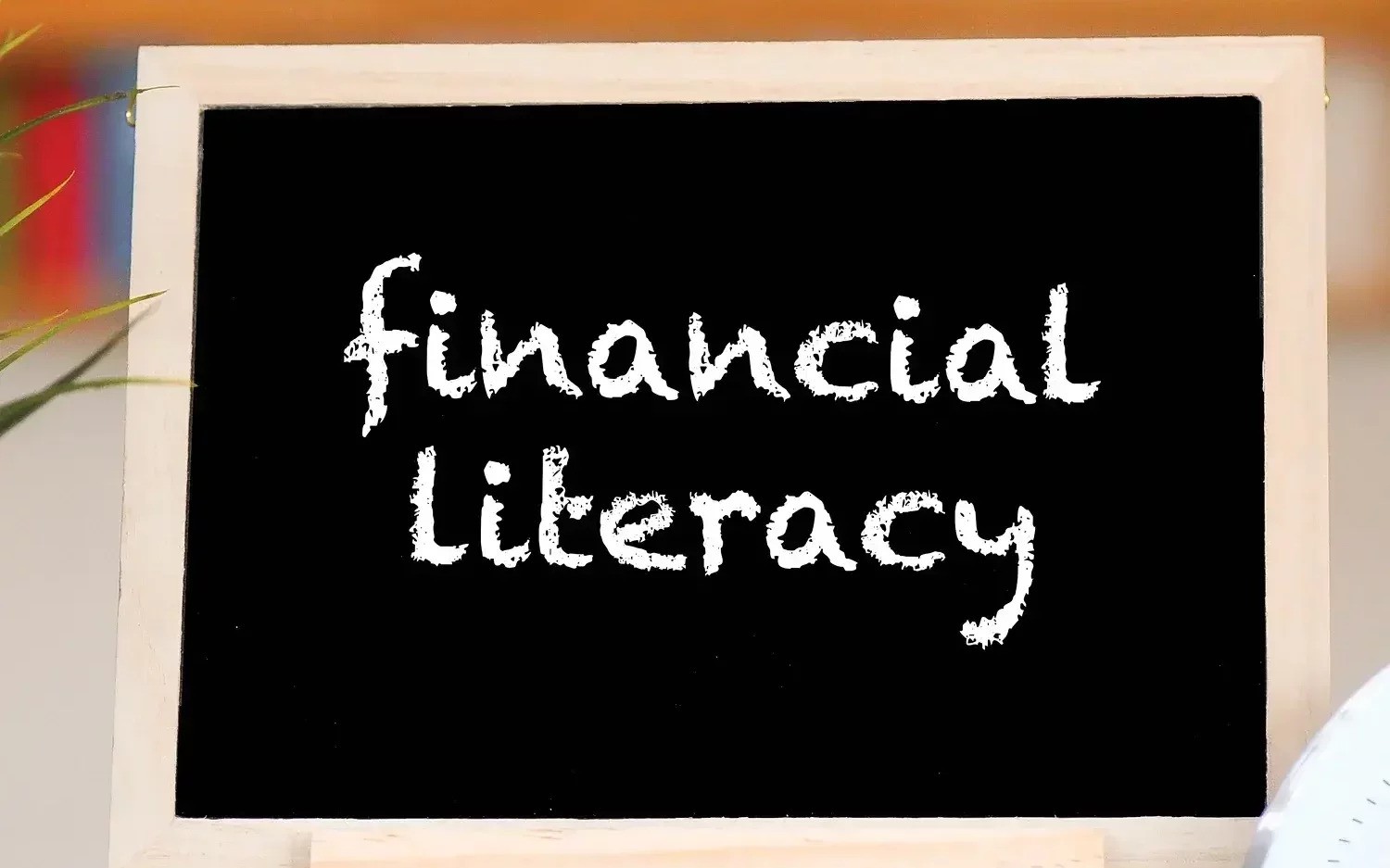Financial Literacy Education - A Strong Foundation For Sound Money Management
Financial literacy education is the key to building a solid foundation for understanding how money works, fostering confidence, and ensuring financial success later in life. While it's never too late to embark on this educational journey, starting early provides a valuable head start.
Author:Dexter CookeReviewer:Alberto ThompsonJan 08, 20242.6K Shares112.2K Views

Financial literacy educationis the key to building a solid foundation for understanding how money works, fostering confidence, and ensuring financial success later in life. While it's never too late to embark on this educational journey, starting early provides a valuable head start. The initial foray into the realm of finances begins with the fundamental principles imparted by financial literacy education.
What Is Financial Literacy?
Financial literacy encompasses the capacity to comprehend and apply a diverse set of financial skills, spanning personal financial management, budgeting, and investment strategies. It involves grasping fundamental financial principles such as the time value of money, compound interest, effective debt management, and strategic financial planning.
The acquisition of financial literacy equips individuals with the knowledge to steer clear of ill-advised financial decisions, fostering self-sufficiency and enabling the attainment of financial stability. Essential steps toward achieving financial literacy include mastering the art of creating budgets, monitoring expenditures, eliminating debt, and crafting retirement plans.
To enhance financial literacy, one must delve into understanding the mechanics of money, establish and accomplish financial goals, discern unethical or discriminatory financial practices, and adeptly navigate the financial challenges that arise throughout life. In essence, it is a journey of continuous education and empowerment in the realm of personal finance.
Understanding Financial Literacy
From the early 2000s to 2022, there has been a widespread proliferation of financial products and services across society. Unlike previous generations in the U.S. who predominantly made cash purchases, contemporary trends favor various credit instruments like credit and debit cards, as well as electronic transfers. A survey by the Federal Reserve Bank of San Francisco in 2021 revealed a change, with credit cards now accounting for 28% of all payments, compared to cash's 20% share.
Given the paramount role of finance in modern society, lacking financial literacy can have severe repercussions on an individual's long-term financial success. Surprisingly, research indicates that financial illiteracy is prevalent, with the Financial Industry Regulatory Authority (FINRA) attributing it to 66% of Americans.
The consequences of financial illiteracy are substantial and can include a higher likelihood of accumulating unsustainable debt burdens, stemming from poor spending decisions or a lack of long-term preparation. This, in turn, may lead to adverse outcomes such as poor credit, bankruptcy, housing foreclosure, and other financial setbacks.
Fortunately, there is an abundance of resources available for those seeking to enhance their financial knowledge. One noteworthy example is the U.S. government-sponsored Financial Literacy and Education Commission, which provides a variety of free learning resources.
Scope Of Financial Literacy
While financial literacy encompasses a broad range of skills, some widely recognized examples include household budgeting, effective debt management, and the ability to assess tradeoffs among various credit and investment products. Proficiency in these skills typically necessitates a fundamental understanding of key financial concepts like compound interest and the time value of money.
The significance of other financial products, such as mortgages, student loans, health insurance, and self-directed investment accounts, has also grown. Consequently, it is increasingly crucial for individuals to grasp how to use these products responsibly.
Financial literacy extends to both short-term and long-term financial strategies, with the chosen approach dependent on factors like age, time horizon, and risk tolerance. It involves recognizing how current investment decisions can impact future tax liabilities.
Furthermore, being financially literate involves discerning the most suitable investment vehicles for saving, whether for specific goals like home purchases or retirement. It also encompasses staying informed about recent financial innovations, such as e-wallets, digital currencies, buy now/pay later options, P2P lending, and other novel financial products. While these innovations offer convenience and cost-effectiveness, consumers need to be educated to assess them effectively and leverage them to their advantage.
Fundamental Components Of Financial Literacy
Financial literacy encompasses various components and skills that empower individuals with the knowledge to effectively manage their money and debt. The fundamental components of financial literacy that individuals should learn include:
Budgeting
Understanding the four main uses of money - spending, investing, saving, and giving away - forms the basis of budgeting. Striking the right balance among these uses enables individuals to allocate their income wisely, fostering financial security and prosperity. A well-structured budget should prioritize paying off existing debt while setting aside funds for savings and beneficial investments.
Investing
Financial literacy requires learning about key components related to investing, including interest rates, price levels, diversification, risk mitigation, and indexes. Acquiring knowledge about these crucial investment elements empowers individuals to make informed financial decisions, potentially leading to increased income.
Borrowing
Borrowing is a common necessity in life, and to ensure effective borrowing, individuals must comprehend concepts such as interest rates, compound interest, the time value of money, payment periods, and loan structure. A thorough understanding of these criteria enhances financial literacy by providing practical guidelines for borrowing and reducing long-term financial stress.
Taxation
Acquiring knowledge about the various forms of taxation and their impact on an individual's net income is paramount for achieving financial literacy. Whether derived from employment, investments, rentals, inheritance, or unexpected sources, each form of income is subject to distinct tax implications. Understanding diverse income tax rates is essential for fostering economic stability and enhancing financial performance through effective income management.
Personal Financial Management
At the core of financial literacy lies personal financial management, which encompasses a comprehensive mix of the components mentioned above. Financial security is achieved by skillfully balancing these financial components, solidifying and increasing investments and savings, while concurrently minimizing borrowing and debt. Attaining an in-depth understanding of the discussed financial components ensures a substantial increase in an individual's financial literacy.

The Importance Of Financial Literacy
According to the National Financial Capability Study of the Financial Industry Regulatory Authority (FINRA), individuals with higher levels of financial literacy in the United States are more likely to effectively manage their finances. They are more inclined to meet their financial obligations, spend a smaller portion of their income, establish a three-month emergency fund, and initiate a retirement account compared to those with lower financial literacy.
In today's landscape, making informed financial decisions is crucial, especially in the context of retirement planning. Unlike in the past, when many relied on pension plans, today's workers often face the responsibility of managing their retirement savings, notably through options like 401(k) plans.
This shift necessitates active decision-making by employees regarding contribution levels and investment choices. For those without employer-sponsored plans, actively seeking and opening individual retirement accounts (IRAs) and other tax-advantaged retirement accounts becomes crucial.
Factors such as an increasing life span leading to longer retirements, limited social security benefits, intricate health and insurance options, and a plethora of complex savings and investment instruments add to the challenges. With choices extending across banks, credit unions, brokerage firms, credit card companies, and more, the need for financial literacy becomes evident. It is not only essential for making thoughtful and informed decisions but also for avoiding unnecessary debt, assisting family members through complex financial choices, and ensuring a stable income in retirement.
Benefits Of Financial Literacy
From a holistic perspective, the value of financial literacy lies in empowering individuals to make informed and intelligent decisions. More specifically, financial literacy holds significance for various reasons.
One crucial aspect is that financial literacy acts as a safeguard against potentially devastating mistakes. For instance, understanding the nuances of floating-rate loans or the restrictions on traditional individual retirement account (IRA) contributions can prevent individuals from making decisions with long-term implications that may cost them money or disrupt their life plans.
Financial literacy also plays a pivotal role in preparing people for emergencies. Topics such as saving and emergency preparedness equip individuals to handle uncertainties. While job loss or unexpected expenses can have significant financial impacts, the proactive application of financial literacy allows individuals to cushion the blow by being prepared for emergencies.
Moreover, financial literacy contributes to individuals achieving their goals. A deeper comprehension of budgeting and saving empowers individuals to formulate plans that establish expectations, foster financial accountability, and pave the way for realizing seemingly unattainable goals. Even if a particular dream seems financially out of reach today, financial literacy enables the creation of strategic plans to enhance the likelihood of achieving those aspirations.
Lastly, financial literacy instills confidence. Imagine making life-altering decisions without having all the necessary information. Armed with knowledge about finances, individuals can approach major life choices with greater confidence, knowing they are less likely to be surprised or negatively impacted by unforeseen outcomes. This confidence stems from being well-informed and capable of making sound financial decisions.
Strategies To Improve Financial Literacy Skills
Developing financial literacy to enhance personal finances involves acquiring skills in budgeting, debt management, and understanding credit and investment products. Regardless of your current financial situation or life stage, it's never too late to cultivate sound financial habits. Consider the following practical strategies:
Create A Budget
Use tools such as Excel sheets, paper, or budgeting apps to track your monthly income and expenses. Include various components in your budget, such as income from paychecks, investments, or alimony; fixed expenses like rent/mortgage, utilities, and loan payments; discretionary spending for nonessentials like dining out, shopping, and travel; and a category for savings.
Pay Yourself First
Embrace the concept of reverse budgeting by prioritizing savings. Set a savings goal, whether it's for education or another purpose, and determine a monthly contribution towards that goal. Allocate this savings amount before budgeting for other expenses, ensuring a proactive approach to building financial reserves.
Ensure Timely Bill Payments
Maintain a proactive approach to monthly bills by consistently paying them on time. Utilize options such as automatic debits from a checking account and bill-pay apps, and sign up for payment reminders through email, phone, or text.
Review Your Credit Report
Annually request a free credit report from the major credit bureaus - Equifax, Experian, and TransUnion - via AnnualCreditReport.com. Scrutinize these reports for inaccuracies and promptly dispute any errors with the credit bureau. For ongoing monitoring, consider spacing out your requests throughout the year.
Monitor Your Credit Score
Maintaining a favorable credit score is crucial for securing optimal interest rates on loans and credit cards. Keep tabs on your score through free credit monitoring services or premium credit monitoring services for added security. Be mindful of financial decisions that impact your score, such as credit inquiries and credit utilization ratios.
Effectively Manage Debt
Leverage your budget to stay in control of debt by curbing spending and increasing repayment efforts. Develop a structured debt reduction plan, prioritizing repayment of high-interest loans. If faced with excessive debt, explore options like renegotiating repayment terms, consolidating loans, or seeking guidance from a debt counseling program.
Invest In Your Future
Take advantage of employer-offered 401(k) retirement savings accounts by enrolling and contributing up to the maximum to benefit from employer matches. Additionally, consider opening an individual retirement account (IRA) and diversifying your investment portfolio with stocks, fixed income, and commodities. Seek professional financial advice if needed to determine retirement savings goals and develop effective strategies to achieve them.
How To Set Financial Goals
Establishing financial goals involves differentiating between short-term and long-term objectives. Short-term goals address immediate needs or desires, while long-term goals encompass significant milestones like retirement or purchasing a house.
Calculate the required funds for each goal, factoring in elements such as inflation and the time horizon—the duration remaining before achieving the goal. Breaking down these goals into smaller milestones and creating a timeline for accomplishment is essential.
Utilize tools such as spreadsheets or budgeting apps to monitor your progress. Regularly reassess and adjust your goals in response to changing circumstances. To stay motivated, celebrate milestones along the way, fostering a sense of accomplishment and encouraging continued progress.
How To Create A Budget
A budget serves as a monthly spending plan to ensure that you don't exhaust your funds prematurely and allows for saving towards long-term goals. To create your budget, start by listing your monthly expenses, which can include:
- Fixed bills like rent and consistent monthly expenses.
- Variable bills, such as utilities.
- Periodic bills, like car insurance, are paid once or twice a year.
- Expenditure on clothes, credit card bills, entertainment, food, gas, transportation, school supplies, and unforeseen expenses like home or car repairs and medical costs.
Next, detail your income, encompassing all sources like paychecks, tips, side jobs, or child support. Finally, calculate the difference between your total income and expenses. If the result is negative, it indicates overspending, necessitating a review, a potential reduction in expenses, or seeking additional income. Conversely, a positive outcome represents funds available for savings or other financial objectives.
How To Invest Money
When engaging in investments, having a clear financial goal is crucial. While many invest for retirement, others have specific objectives, like purchasing a home or funding their children's education.
Initiating investment through employer-sponsored retirement plans, such as 401(k)s, is an excellent starting point, particularly if your employer offers matching contributions. Consistent contributions to these plans enable the accumulation of substantial savings over time.
Various investment options, including stocks, bonds, and mutual funds, carry distinct benefits and risks. Understanding your comfort level with risk and aligning it with your financial goals is essential. Risk tolerance varies from person to person, making it crucial to assess and comprehend your own.
The amount you should invest depends on your unique financial circumstances and goals. While it's never too late to start investing, starting early provides more time for your investment portfolio to grow. Whether you're a seasoned investor or just beginning, having a well-defined financial goal, understanding your risk tolerance, and starting early are key principles for successful investing.
Financial Literacy Education - FAQ
What Is Another Name For Financial Literacy?
Financial literacy, also referred to as financial capability, means having the capacity, based on knowledge, skills, and access, to manage your financial resources effectively.
What Are The Five Financial Measures?
The common financial ratios every business should track are liquidity ratios, leverage ratios, efficiency ratios, profitability ratios, and market value ratios.
What Is The Main Financial Instrument?
Common examples of financial instruments include stocks, exchange-traded funds (ETFs), mutual funds, real estate investment trusts (REITs), bonds, derivatives contracts (such as options, futures, and swaps), checks, certificates of deposit (CDs), bank deposits, and loans.
Final Words
Financial literacy education is the acquisition of knowledge on making intelligent decisions with money. This encompasses skills such as preparing a budget, determining appropriate savings amounts, negotiating favorable loan terms, comprehending the implications on credit, and discerning various vehicles employed for retirement. The acquisition of these skills through financial literacy education empowers individuals to make informed decisions and act responsibly in managing their finances.
Jump to
What Is Financial Literacy?
Understanding Financial Literacy
Scope Of Financial Literacy
Fundamental Components Of Financial Literacy
The Importance Of Financial Literacy
Benefits Of Financial Literacy
Strategies To Improve Financial Literacy Skills
How To Set Financial Goals
How To Create A Budget
How To Invest Money
Financial Literacy Education - FAQ
Final Words

Dexter Cooke
Author
Dexter Cooke is an economist, marketing strategist, and orthopedic surgeon with over 20 years of experience crafting compelling narratives that resonate worldwide.
He holds a Journalism degree from Columbia University, an Economics background from Yale University, and a medical degree with a postdoctoral fellowship in orthopedic medicine from the Medical University of South Carolina.
Dexter’s insights into media, economics, and marketing shine through his prolific contributions to respected publications and advisory roles for influential organizations.
As an orthopedic surgeon specializing in minimally invasive knee replacement surgery and laparoscopic procedures, Dexter prioritizes patient care above all.
Outside his professional pursuits, Dexter enjoys collecting vintage watches, studying ancient civilizations, learning about astronomy, and participating in charity runs.

Alberto Thompson
Reviewer
Alberto Thompson is an acclaimed journalist, sports enthusiast, and economics aficionado renowned for his expertise and trustworthiness. Holding a Bachelor's degree in Journalism and Economics from Columbia University, Alberto brings over 15 years of media experience to his work, delivering insights that are both deep and accurate.
Outside of his professional pursuits, Alberto enjoys exploring the outdoors, indulging in sports, and immersing himself in literature. His dedication to providing informed perspectives and fostering meaningful discourse underscores his passion for journalism, sports, and economics. Alberto Thompson continues to make a significant impact in these fields, leaving an indelible mark through his commitment and expertise.
Latest Articles
Popular Articles
